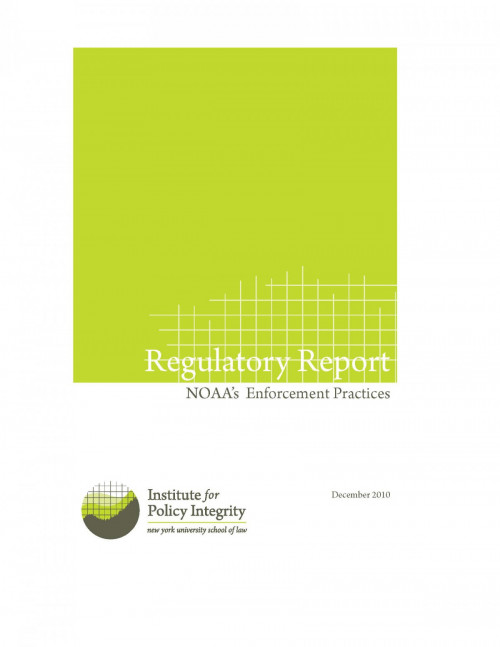Threatening certain kinds of protected marine life causes serious environmental risks and often carries serious penalties. But a possible shift in ocean policies could risk a rise in over-fishing.
In NOAA’s Enforcement Practices we recommend more economically effective fines that would increase the protection of our nation’s ocean life.
The National Oceanic and Atmospheric Administration (NOAA) is the agency charged with protecting fish and other marine life. Our report responds to a draft NOAA guidance that, if finalized, would revise the penalties and fees for violations like using improper gear or fishing in protected areas.
The report finds that NOAA’s proposal is too lenient for certain types of violations and fails to create the right incentives to obey the law. We instead suggests properly calibrated fees combined with more rigorous enforcement that, together, will serve to efficiently deter over-fishing.
The NOAA proposal places greater emphasis on the “state of mind” of an offender—whether a violation was willful or the result of negligence—rather than the harm created by misconduct. As a consequence, sea-faring industries will not see adequate incentives to preserving marine-life.
Policy Integrity recommends penalties that are enforced uniformly so that offenders are aware of the steep risks they take when over-fishing. Fines should be set high enough to account for the many violations that go undetected. The report offers a formula, based on standard economic principles, for setting penalties that would deliver the appropriate incentives to protect the environment.

